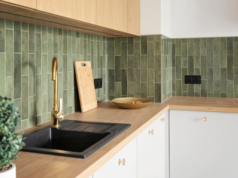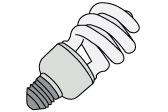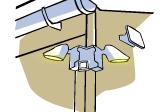Light globe types
Different types of globes offer different advantages in different situations. Choosing the wrong type can easily cost you much more in the long run.
The...
Types of lighting
Lighting does more than just help you see — it shapes the mood, improves functionality and highlights the design of every room. Whether you’re planning a new build or upgrading an older home, understanding the different types of lighting is key to creating a space that’s practical, stylish and energy efficient.
Garage lighting
Garage and workshop lighting needs to be bright and functional - not just for safety, but also for security.
Good lighting makes a big difference...
Security lighting
Lighting plays an important role in most home security systems, and is a relatively cheap and effective deterrent.
Floodlights with sensors are a simple and...
Landscape and garden lighting
Good landscape and garden lighting can do amazing things for the way your yard looks at night.
Outdoor lighting presents a great opportunity to experiment.
Landscape...
Hall and foyer lighting
These areas are the entrances to your house, so the lighting should be warm and inviting. They can also make use of referred light.
Light...
Bedroom lighting
Bedroom lighting is typically warm and relatively basic. Your lighting design here really depends on what else you do in your bedroom!
Bedside reading lamps:...
Kitchen lighting
The lighting design in your kitchen will make a vast difference to how comfortable and safe it is, as well as to how good...
Living and dining room lighting
These areas can be lit however you choose, and give you a great deal of freedom to do interesting things with light design.
A carefully...
How to light different areas
Different areas of your house and yard have vastly different requirements in terms of the light they need. Carefully planning the sort of light...















